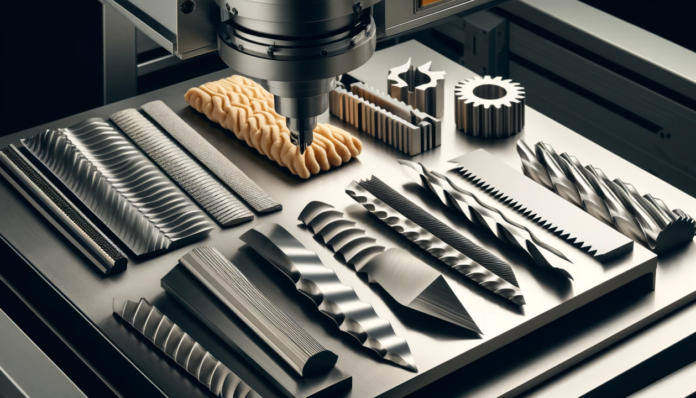In today’s fast-paced manufacturing landscape, CNC (Computer Numerical Control) cutters and grading software have become indispensable tools, driving precision, efficiency, and innovation across various industries. This article explores the intricacies of CNC Cutter and grading software, highlighting their functionalities, benefits, industry applications, and future trends.
CNC cutters represent a pinnacle of modern manufacturing technology. These automated machines utilize computerized controls to execute precise cutting operations on various materials, ranging from metals to plastics and composites. The advent of CNC technology has revolutionized production processes by offering unparalleled accuracy and repeatability.
Types of CNC Cutters
There exist several types of CNC cutters, each tailored to specific manufacturing needs:
Milling Machines
Milling CNC machines use rotary cutters to remove material from a workpiece, creating complex shapes and geometries. They find extensive use in industries requiring intricate component manufacturing.
CNC Lathes
Lathes perform turning operations by rotating the workpiece against cutting tools, ideal for cylindrical or spherical parts. These machines are pivotal in mass production scenarios.
Laser Cutters
Utilizing high-powered lasers, these CNC machines precisely cut through materials with minimal waste, making them indispensable in industries demanding intricate and delicate cutting operations.
Key Components of a CNC Cutter
A typical CNC cutter comprises several crucial components:
Controller
The brain of the machine, the controller interprets programming code (G-code) to coordinate movements of the cutter and workpiece.
Spindle
The spindle holds cutting tools and rotates at high speeds, ensuring precise material removal.
Bed
The sturdy base where the workpiece is securely mounted during cutting operations.
Advantages of Using CNC Cutters
CNC cutters offer numerous advantages over traditional machining methods:
- Precision: Achieves accuracy down to micrometers, ensuring consistent quality.
- Efficiency: Reduces production time and labor costs through automated operations.
- Versatility: Handles a wide range of materials and geometries with ease.
Introduction to Grading Software
Grading software plays a pivotal role in industries like fashion and textiles, where scaling and optimizing patterns are crucial for efficient production.
Types of Grading Software
Grading software encompasses various specialized tools:
Pattern Grading Software
Automates the process of scaling patterns to different sizes while maintaining proportions and fit.
Marker Making Software
Optimizes fabric utilization by generating efficient marker layouts for cutting operations, minimizing waste.
Key Features of Grading Software
Grading software offers sophisticated features tailored to industry needs:
- Automated Grading: Speeds up the scaling process, enhancing workflow efficiency.
- Nesting Optimization: Maximizes material usage, reducing fabric waste and production costs.
Integration of CNC Cutter and Grading Software
The integration of CNC cutters and Grading software creates synergies that streamline production processes. By synchronizing pattern scaling with precise cutting operations, manufacturers achieve higher throughput and cost savings.
Industry Applications
Industries benefiting from CNC cutters and grading software include:
- Fashion and Apparel: Enhances design flexibility and accelerates production cycles.
- Automotive: Produces intricate parts with superior precision.
- Aerospace: Enables lightweight component manufacturing with high structural integrity.
Future Trends in CNC Technology and Grading Software
The future holds promising advancements:
- AI Integration: Predictive maintenance and adaptive machining capabilities.
- Enhanced Connectivity: IoT-enabled machines for real-time data analysis and remote monitoring.
Challenges and Considerations
Despite their benefits, adopting CNC cutters and grading software presents challenges such as initial costs and training requirements. However, these hurdles are outweighed by long-term efficiency gains and competitive advantages.
Comparison with Traditional Methods
Compared to traditional methods, CNC technology and grading software offer:
- Higher Precision: Consistent quality and repeatability.
- Greater Efficiency: Reduced lead times and operational costs.
Buying Guide for CNC Cutters and Grading Software
When investing in CNC cutters and grading software, consider factors like:
- Cost: Initial investment vs. long-term ROI.
- Scalability: Ability to expand production capabilities.
- Support: Vendor reputation and service agreements.
Conclusion
In conclusion, CNC cutters and grading software represent a paradigm shift in manufacturing, driving efficiency, precision, and innovation across diverse industries. As technology continues to evolve, these tools will play an increasingly crucial role in shaping the future of production.
